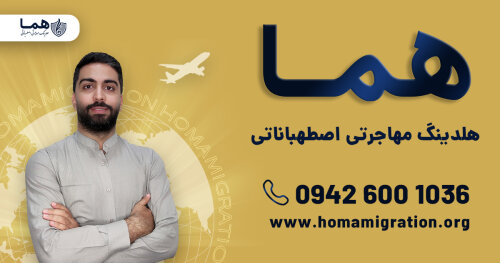Best Child Custody Lawyers in Shiraz
Share your needs with us, get contacted by law firms.
Free. Takes 2 min.
Free Guide to Hiring a Family Lawyer
List of the best lawyers in Shiraz, Iran
About Child Custody Law in Shiraz, Iran
Child custody law in Shiraz, Iran, operates under the framework of Islamic law, as practiced within the country. Custody matters are typically handled by family courts, and the principle guiding these decisions is the best interest of the child. Typically, custody of young children is often granted to the mother unless there are significant issues that would suggest otherwise. As the child grows older, especially past the age of seven, custody evaluations may take into account the child's wishes and the parent's ability to provide a stable environment. It's important to note that these laws can have slight regional differences due to local practices within the judiciary system.
Why You May Need a Lawyer
There are various scenarios where seeking a lawyer’s assistance in child custody matters in Shiraz may be beneficial:
- During a divorce where the parents are unable to agree on custody arrangements.
- If there are allegations of abuse or neglect by either parent.
- When seeking changes to an existing custody arrangement, such as adjustments to visitation rights.
- If you are relocating to another city or country with your child.
- In cases involving international child abduction where one parent removes a child from the country without consent.
- If you're encountering legal complexities regarding custody rights as an expatriate.
A lawyer can provide guidance and representation to help navigate complex legal processes and protect the interests of both the parent and child.
Local Laws Overview
Key aspects of child custody laws in Shiraz, Iran include:
- The child's welfare and best interests are the central consideration in custody decisions.
- For children under the age of seven, mothers are generally favored as custodians unless proven otherwise.
- Fathers are usually granted custody of boys over the age of seven.
- Court intervention is common in disputed custody cases, requiring formal legal proceedings.
- Custody decisions can be revisited upon significant changes in circumstances affecting the child's welfare.
- Family courts foster an environment aimed at mediation and reconciliation before proceeding with litigation.
Frequently Asked Questions
What determines custody decisions in Shiraz?
The best interests of the child are paramount, considering factors like parents' moral and physical ability to care for the child, and the child's own wishes where applicable.
Can custody arrangements be modified after the court has made a decision?
Yes, custody arrangements can be revisited if there is a significant change in circumstances, such as changes in the child's needs or a parent's ability to provide care.
How does the court view the wishes of the child in custody cases?
The wishes of the child may be considered, especially for older children, but the final decision rests on the child's best interests as determined by the court.
What role does mediation play in custody disputes?
Mediation is encouraged to facilitate agreement between parents, helping to resolve disputes amicably and avoid court proceedings.
Are there specific requirements for a parent seeking custody?
A parent must demonstrate the capacity to provide for the child's physical, emotional, and educational needs to the satisfaction of the court.
What happens if a parent violates a custody order?
Violation of a custody order may result in legal consequences such as fines or modification of the existing custody arrangement.
How are custody disputes between expatriates handled?
Expatriate custody disputes may involve additional complexities requiring careful navigation of both Iranian law and international treaties.
Is legal aid available for low-income individuals in custody disputes?
There may be pro-bono services or legal aid available through local non-profits and governmental support for low-income individuals in custody disputes.
What is the process if a parent wishes to relocate with the child?
Relocation requires court approval, demonstrating that the move is in the best interest of the child, and the relocating parent must follow due legal processes.
Can grandparents or other family members obtain custody?
In certain situations, other family members may petition for custody if it is deemed in the best interest of the child, but it is subject to strict scrutiny by the courts.
Additional Resources
For those seeking further assistance, the following resources may be helpful:
- Ministry of Justice - Iran: Offering information on family law and access to legal resources.
- Local Family Courts: Available for guidance on filing and processing custody cases.
- Legal Aid Societies: Providing assistance to individuals in need of legal help in Shiraz.
- Iranian Bar Association: Lists accredited lawyers specializing in family law.
Next Steps
If you require legal assistance with child custody matters in Shiraz, consider the following steps:
- Consult with a qualified family law attorney specializing in Iranian custody law.
- Gather necessary documentation, including any current custody orders, financial statements, and character references.
- Attend mediation sessions if recommended to try and reach an amicable resolution.
- If court proceedings are necessary, ensure you understand the process and be prepared to present your case effectively.
Taking informed steps and seeking experienced legal guidance can significantly affect the outcomes of child custody proceedings.
Lawzana helps you find the best lawyers and law firms in Shiraz through a curated and pre-screened list of qualified legal professionals. Our platform offers rankings and detailed profiles of attorneys and law firms, allowing you to compare based on practice areas, including Child Custody, experience, and client feedback.
Each profile includes a description of the firm's areas of practice, client reviews, team members and partners, year of establishment, spoken languages, office locations, contact information, social media presence, and any published articles or resources. Most firms on our platform speak English and are experienced in both local and international legal matters.
Get a quote from top-rated law firms in Shiraz, Iran — quickly, securely, and without unnecessary hassle.
Disclaimer:
The information provided on this page is for general informational purposes only and does not constitute legal advice. While we strive to ensure the accuracy and relevance of the content, legal information may change over time, and interpretations of the law can vary. You should always consult with a qualified legal professional for advice specific to your situation.
We disclaim all liability for actions taken or not taken based on the content of this page. If you believe any information is incorrect or outdated, please contact us, and we will review and update it where appropriate.










